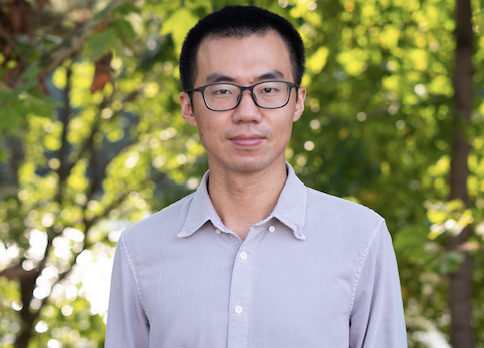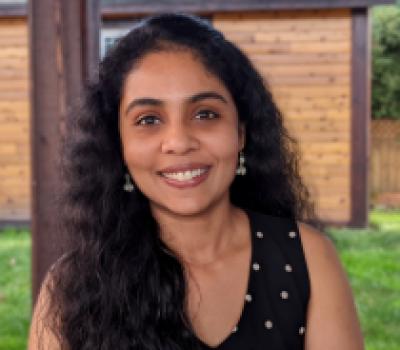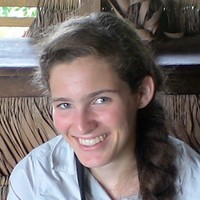Program
The bridge’s program will span activities from traditional tutorials and invited vision talks, to an interactive panel and breakout discussions.
The program can be found below:
All times are in Eastern Standard Time (EST, UTC-5)
February 25th
- 9:00: Bridge kickoff - Organizers (15 min)
- 9:15: Tigramite tutorial: Rebecca Herman, ScaDS.AI Dresden/Leipzig (90 min)
- 10:45: Coffee break - coffee provided by the conference (30 min)
- 11:15: Invited vision talk: Eric Eaton, University of Pennsylvania (45 min)
- 12:00: Lunch break - on your own, no lunch provided (90 min)
- 13:30: Invited vision talk: Karthika Mohan, Oregon State University (45 min)
- 14:15: Breakout discussions (60 min)
- 15:15: Invited vision talk: Sheng Li, University of Virginia (45 min)
- 16:00-16:30: Coffee break - coffee provided by the conference (30 min)
- 16:30: Panel discussion - tutorial & vision speakers (60 min)
- 17:30: Bridge wrap-up
Invited Speakers
 Sheng Li - University of Virginia
Sheng Li - University of Virginia
Sheng Li is a Quantitative Foundation Associate Professor of Data Science and an Associate Professor of Computer Science (by courtesy) at the University of Virginia (UVA). He was an Assistant Professor of Data Science at UVA from 2022 to 2023, an Assistant Professor of Computer Science at the University of Georgia from 2018 to 2022, and a Data Scientist at Adobe Research from 2017 to 2018. He received his PhD degree in Computer Engineering from Northeastern University in 2017 under the supervision of Prof. Yun Raymond Fu. He received his Master degree and Bachelor degree from School of Computer Science at Nanjing University of Posts and Telecommunications in 2012 and 2010, respectively. His recent research interests include trustworthy representation learning, graph neural networks, visual intelligence, and causal inference. He has published over 150 papers, and has received over 10 research awards, such as the INNS Aharon Katzir Young Investigator Award, Fred C. Davidson Early Career Scholar Award, Adobe Data Science Research Award, Cisco Faculty Research Award, and SDM Best Paper Award. He has served as Associate Editor for eight journals such as IEEE Trans. Neural Networks and Learning Systems (TNNLS) and IEEE Trans. Circuits and Systems for Video Technology (TCSVT), and has served as an Area Chair for IJCAI, NeurIPS, ICML, and ICLR.
 Karthika Mohan - Oregon State University
Karthika Mohan - Oregon State University
Karthika Mohan is an Assistant Professor of Computer Science at Oregon State University. Previously she was a postdoctoral scholar at CHAI in UC Berkeley, mentored by Stuart Russell. She completed her PhD in Artificial Intelligence at UCLA under the guidance of Judea Pearl. Her research is of an interdisciplinary nature and her areas of interest include causal inference, graphical models, and AI safety. Her research agenda for the next decade is motivated by the belief that in order to bring machines closer to human levels of intelligence, machine learning algorithms need to deal with the causal component of human reasoning. She was awarded the Google Outstanding Graduate Research Award, 2017 which is a UCLA Commencement Award. Currently she serves on the editorial board of the Journal of Causal Inference.
 Eric Eaton - University of Pennsylvania
Eric Eaton - University of Pennsylvania
Eric Eaton is a research associate professor in the Department of Computer and Information Science at the University of Pennsylvania, and a member of the GRASP (General Robotics Automation, Sensing, Perception) lab. Prior to joining Penn, he was a Visiting Assistant Professor in the computer science department at Bryn Mawr College. His primary research interests lie in the fields of machine learning, artificial intelligence, and data mining with applications to robotics, search & rescue, environmental sustainability, and medicine. In particular, his research focuses on developing versatile AI systems that can learn multiple tasks over a lifetime of experience in complex environments, transfer learned knowledge to rapidly acquire new abilities, and collaborate effectively with humans and other agents through interaction.
Tutorials
 Rebecca Herman - ScaDS.AI Dresden/Leipzig
Rebecca Herman - ScaDS.AI Dresden/Leipzig
Rebecca Herman is a postdoctoral research scientist at ScaDS.AI (Center for Scalable Data Analytics and Artificial Intelligence) Dresden/Leipzig. Previously she was part of the German Aerospace Center (DLR). She studied climate science and monsoon rainfall during her PhD, and her search for meaningful attribution techniques in the face of limited observational and experimental data led her to the study of causal inference. She is now working on the CausalEarth project with Jakob Runge, focusing on algorithm improvement and effective use of causal inference techniques on time-series climate data. At Continual Causality, she will be presenting a tutorial on Tigramite - a popular python software library for causal inference with time series data.